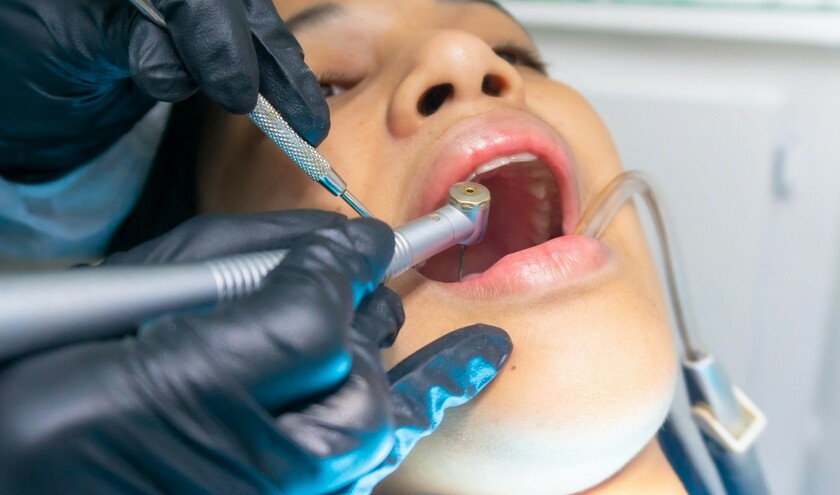the UK is facing a critical shortfall in meeting its dental needs, with rising demand for dental professionals and growing regional disparities in access to care.
The DSC's position is outlined in the Fixing NHS Dentistry report, endorsed by all UK dental schools, which outlines key recommendations to address the current workforce shortages:
1. Workforce expansion is essential
The Government must commit to increasing UK training places in dentistry, dental hygiene, and dental therapy to meet the nation's oral healthcare needs. Existing dental hygiene and dental therapy places are also at risk, from underfunding for clinical placements leading to course closures, which will lead to workforce gaps and a deficit in workforce planning.
2. Improve NHS dental careers to boost retention
While most dental graduates immediately enter the NHS, a growing trend toward private practice later in careers is undermining patients access to NHS care. Expanding dental training places must be matched with efforts to improve NHS career retention. Government should consider reforms to the NHS dental contract, enhanced retention incentives, and clearer career progression pathways, to make NHS careers more attractive and sustainable.
3. Address regional disparities and tackle ‘Dental Deserts'
The DSC is advocating for a more strategic distribution of training places and targeted outreach to underrepresented regions. Dental schools are committed to widening participation and ensuring fair access to dental education opportunities for applicants from all backgrounds. As part of this commitment, dental schools will explore ways to extend widening participation schemes beyond their immediate localities.
4. Long-term workforce planning to build resilience
A coordinated, long-term workforce plan is essential across all four UK nations. Expanded student numbers must be paired with strong support for clinical academics, whose role is to train the next generation of dental professionals.
5. Ethical concerns of recruiting dentists from overseas
General Dental Council data show 17% of new dentists in 2024 were from non-EEA countries, and 30.2% were from EEA non-UK countries. While these professionals contribute greatly to the UK's oral health through clinical work, research and teaching, their recruitment can strain the healthcare systems in their home countries.
6. Support public health to strengthen the economy
Poor oral health costs the UK economy millions every year, through lost workdays, missed school, and costly treatments for issues that could have been prevented. Addressing workforce shortages will improve access to preventative care, reduce NHS treatment costs, and lead to better long-term public health outcomes, ultimately benefiting the UK economy.
Professor Ewen McColl, chair of the Dental Schools Council and head of the School of Dentistry at the University of Plymouth, said: ‘Dental schools are calling for bold action to meet oral healthcare demand and ensure every UK region has a skilled workforce. Dental schools stand ready to scale up, and thousands of highly motivated applicants are eager to take up new places the moment government funding is made available.
'In addition to expanding training places, it is crucial that the NHS retains the professionals it trains. Retention difficulties must also be addressed, and stakeholders have outlined issues responsible, including limited career development, inequitable payment structures, restricted access to pensions, and dissatisfaction with the dental contract. If the government is committed to improving access to NHS oral healthcare, it must create stronger incentives for the dental professionals it funds to remain in the public sector.
'It is equally important to make better use of the diverse skill set of the entire dental team, including dental nurses, dental hygienists, and dental therapists, to ease the pressure of backlogs and reduce waiting times.'
Louise Ansari, chief executive of Healthwatch England, added: ‘Healthwatch England welcomes the Dental Schools Council's proposals to tackle the urgent challenges in NHS dentistry. Workforce shortages play a key role in limiting access to dentistry, especially in the east and south-west of England.
‘Our latest research shows one in six people struggle to get an NHS dental appointment, while a third face long waits for appointments. The DSC's proposals to expand training places and create regional hubs, would be positive steps towards creating more local NHS appointments and removing transport, time and cost barriers to dental care.
‘We also endorse the DSC's aim to better promote NHS careers to dentists in training. Ultimately, the government needs to deliver on its plans to comprehensively reform the NHS dental contract, so the health service can attract and retain dentists instead of watching them turn away in droves to take up lucrative private work.'



